Customization has been a popular request since ChatGPT launched in 2022. The GPT family includes advanced language models designed to deliver personalized output, but repeatedly entering instructions can quickly become tedious. In response, ChatGPT introduced GPTs in 2023. GPTs are custom versions of ChatGPT that use specific instructions and context for tailored tasks, like designing, solving math problems, and of course, writing.
However, not all GPTs are created equal. While all GPTs can produce output in natural language, the quality varies. And since anyone can create a custom GPT, it can be hard to know which ones to trust. To help you find the best tools for generating engaging content, I’ve curated a list of top-performing GPTs. Let’s dive in.
Top GPTs for Writing: Speed up the Writing Process
1. AI Humanizer
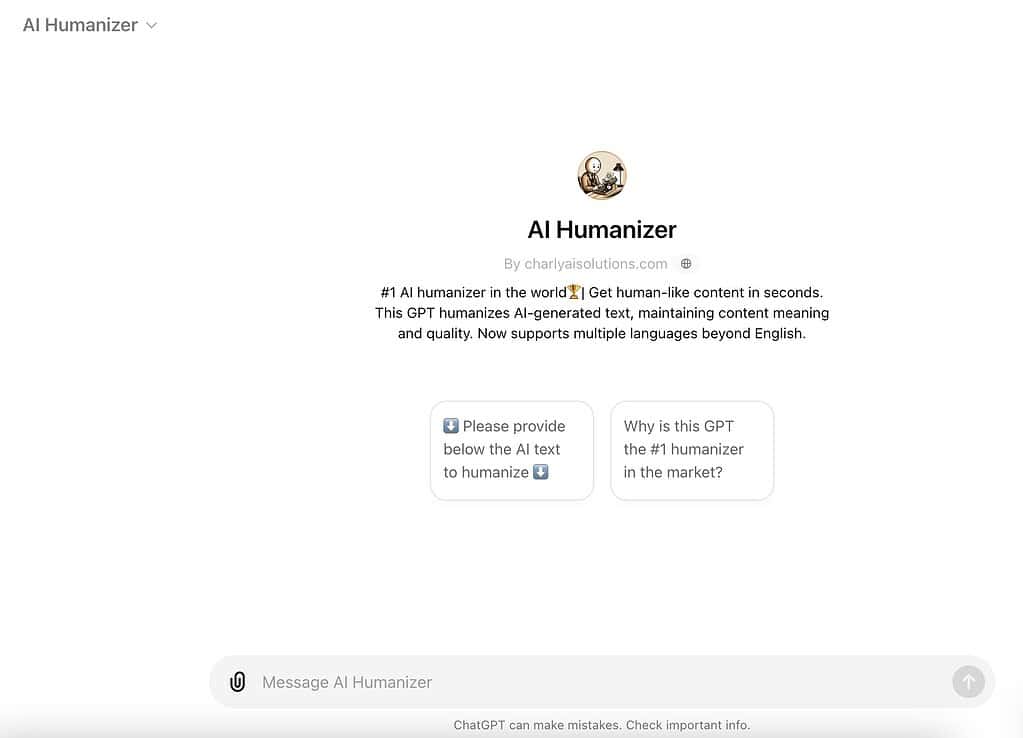
A long-standing complaint with AI content is that it sounds unnatural. Although sophisticated LLMs can produce human-like output in natural language, they tend to repeat the same monotonous, templated writing style across sections. Not only is it a dead giveaway that something’s AI-written, but it also sounds bland.
AI Humanizer adds a human touch to AI content by adjusting its tone and style to improve readability. The goal is to sound more conversational and authentic. This GPT is especially helpful when writing casual pieces, like online blogs, B2C marketing copies, and customer message replies.
2. Copywriter GPT
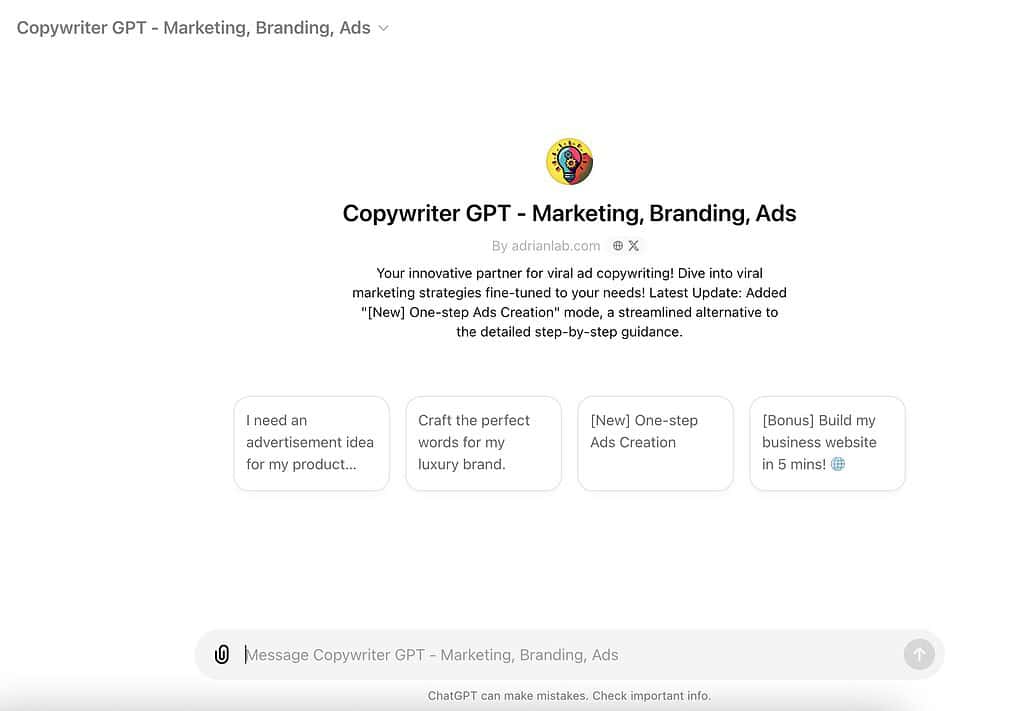
Ad Copy Creator GPT helps craft effective, targeted ad copies. Unlike standard ChatGPT, it’s trained to follow a systematic copywriting process—it won’t just bombard you with randomized output. You can use it to set your campaign goals, gather competitor details, and identify your intended writing tone. This GPT is an excellent option for both business owners and marketers.
Apart from drafting ad copies, you can also use this GPT to explore different strategies. Remember: there’s no one-size-fits-all approach. Even proven, optimized frameworks might need some rework depending on your branding, target market, and KPIs.
3. Academic Assistant Pro
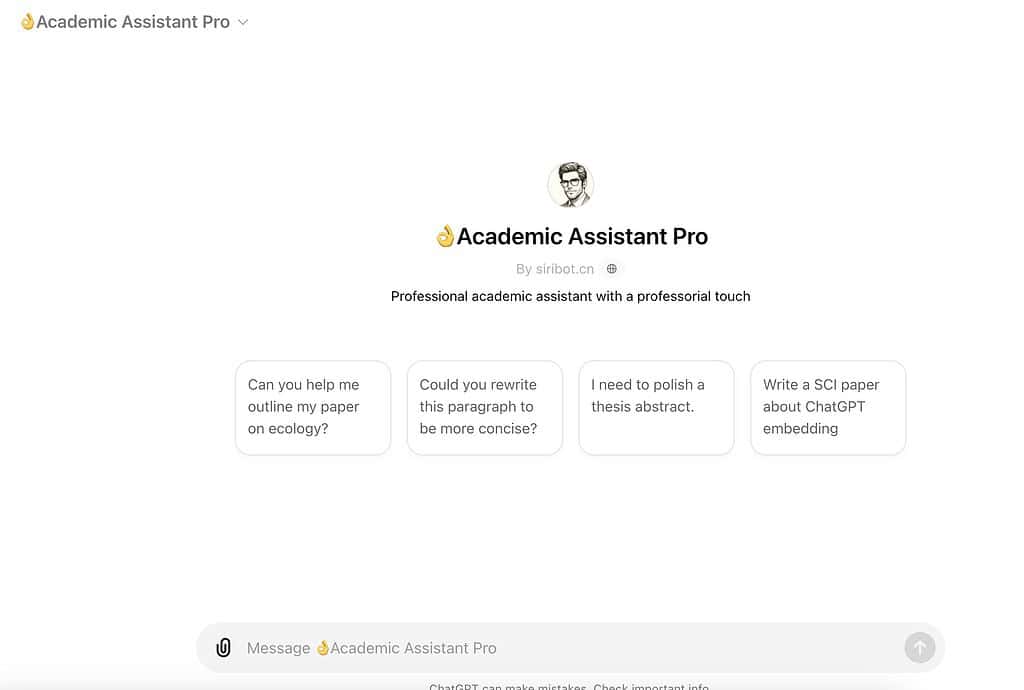
Academic Assistant Pro specializes in academic writing tasks. It can help research topics, craft initial drafts, structure outlines, and polish revisions on various subjects. Personally, I use it to revise pieces for a more academic tone. Apart from adjusting the overall writing style, this GPT can also follow the appropriate stylebook (e.g., APA, MLA, and Chicago).
But like any GPT, note that Academic Assistant Pro is limited to ChatGPT’s knowledge base. It still produces inaccurate information at times. The best approach is to upload relevant resources to your conversations so that the GPT won’t have to pull information from random datasets.
4. Fully SEO Optimized Article Including FAQs
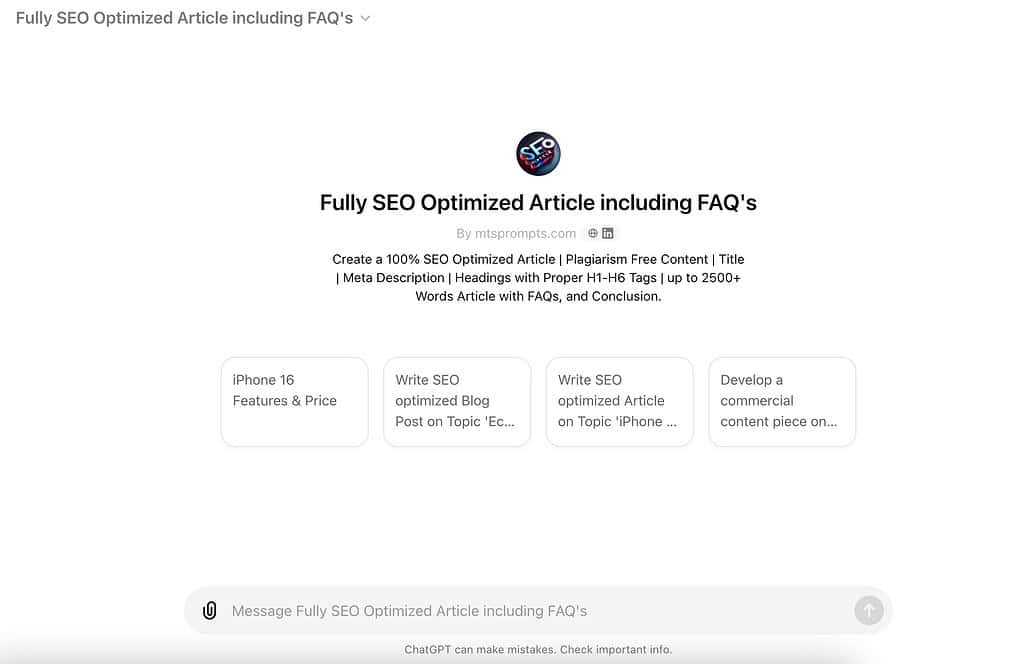
Fully SEO Optimized Article Including FAQs creates informative, engaging content while implementing SEO techniques. It considers content quality and SERP visibility alike. The goal is to drive traffic to your website with ranking keywords and reduce bounce rates by delivering content that appeals to your readers.
What I like about this GPT is it crafts optimized outlines from the onset. It’ll give you a meta description, divide different talking points into paragraphs, and suggest headers for flow. It also generates an FAQ section, consisting of commonly searched phrases in Google’s People Also Ask section.
The only caveat is that its outlines are generated from templates, so your articles might look redundant if you just copy-paste the output as is. I suggest taking its structures as suggestions. Both your readers and Google’s crawl bots would appreciate you adding a more unique touch to your pieces.
5. Book Creator Guide
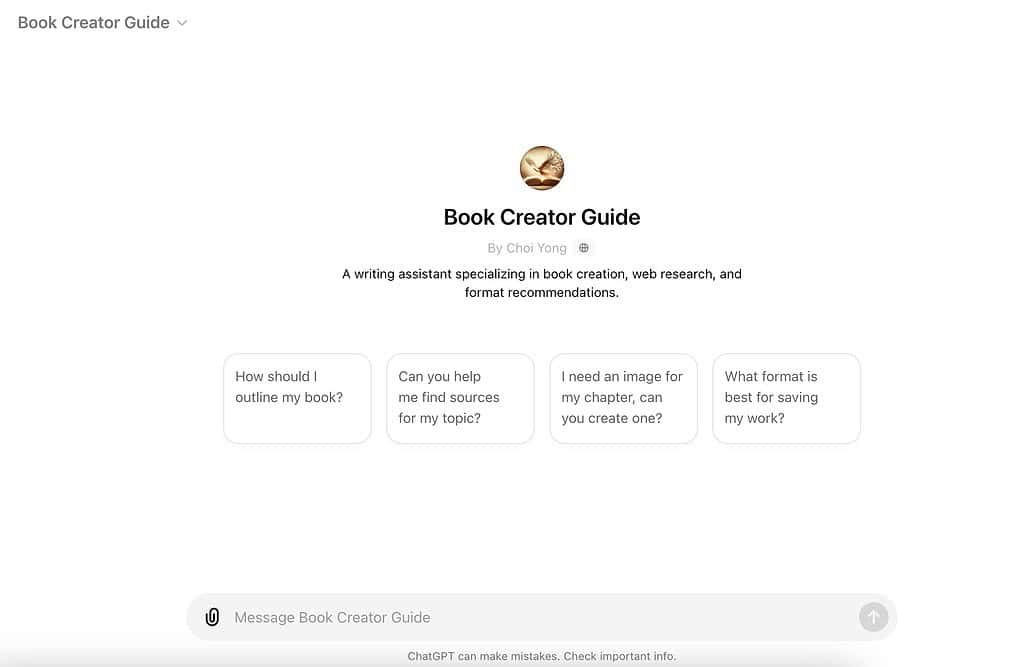
Book Creator Guide is a comprehensive assistant for every stage of the book-writing process. It can help you organize your ideas, prepare extensive proposals, detail chapter outlines, polish the initial draft, rewrite revisions, and complete the final submission. This GPT aims to speed up the writing process while maintaining quality.
Apart from writing assistance, Book Creator Guide provides guidance on structure and formatting. Phrase your prompts in a way that the GPT reminds you to save your work, fact-check claims, provide relevant images, and generate diagrams automatically.
Just note that this GPT is merely a tool to offload non-writing tasks. You’ll still need to come up with unique ideas yourself—ChatGPT can’t create a compelling masterpiece, especially in creative writing, from scratch.
6. Cover Letter Generator Copilot
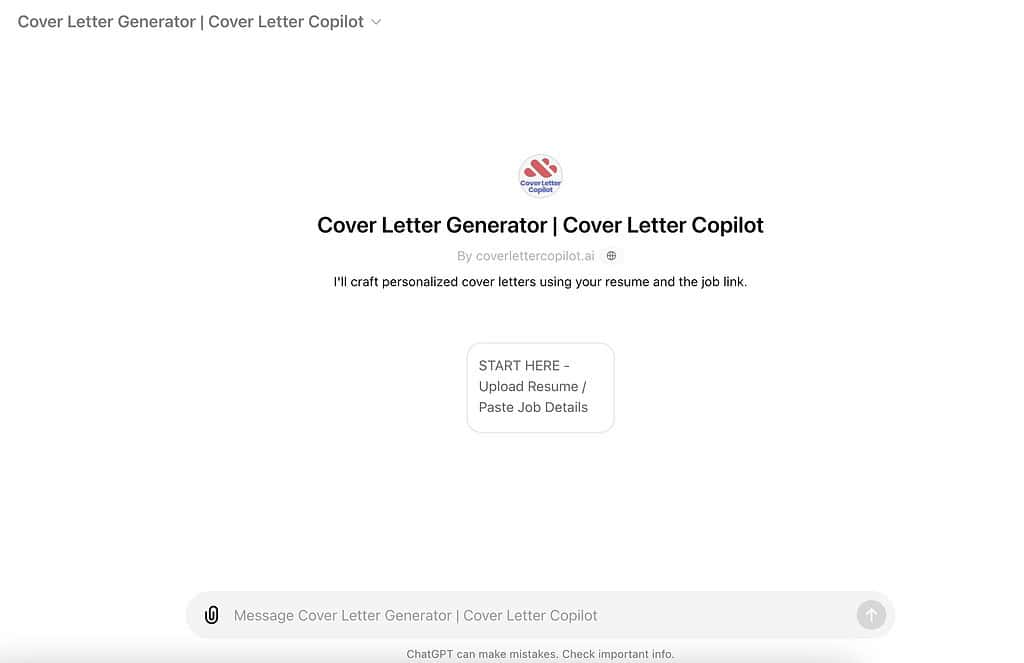
Cover Letter Generator Copilot creates personalized cover letters. Although most people rely on it during job applications, you can basically run this GPT to craft formal introductions and letters of intent. I think it’s a great all-around email writing assistant.
To start, provide context about yourself and the intention behind your message. For instance, are you applying for a job? If so, upload your CV, list down your qualifications, and paste the job posting link for reference. This GPT will generate a custom message based on the information you provide.
But keep in mind that this GPT tends to sound monotonous. Specify the tone and branding you want to convey—a unique, compelling message will leave a much stronger impression.
7. Litero AI
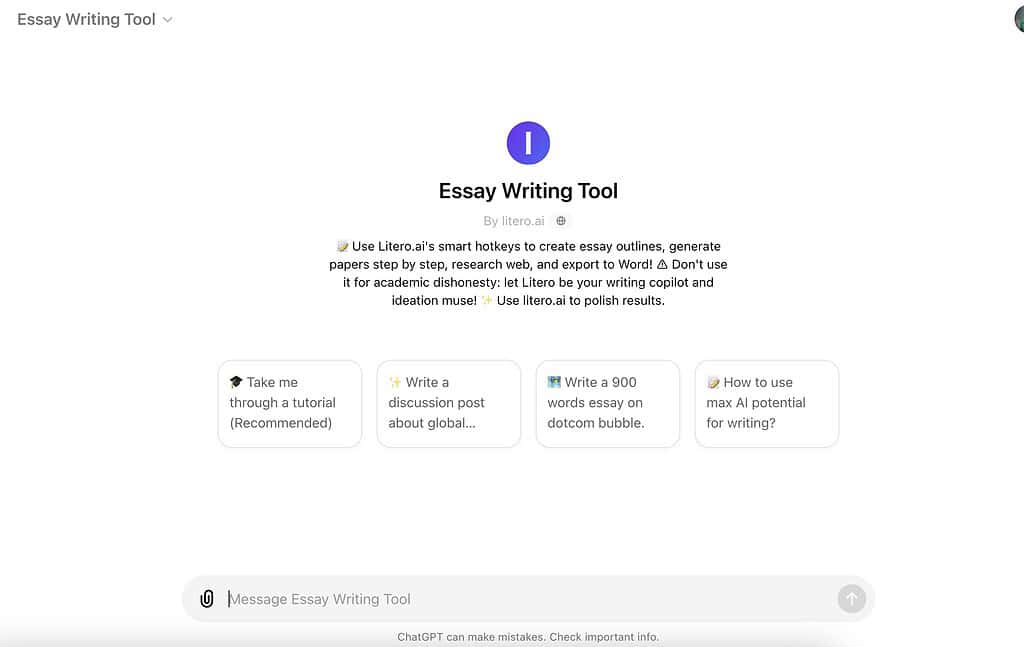
Litero AI is another reliable copilot when writing academic essays and scholarly content. From researching topics to polishing the final draft, this GPT will guide you throughout the process. You’ll receive suggestions on your writing and content in real-time.
What I like about Litero AI is it lists down suggestions instead of changing input outright. Most GPTs would just revise pieces of text without providing any explanation, resulting in writing errors and information gaps. And when you’re writing lengthy theses or academic papers, there’s no room for error.
8. AskYourPDF Research Assistant

AskYourPDF Research Assistant processes PDF documents and articles. It streamlines academic research by properly citing references, summarizing talking points, tracing specific information, and analyzing the credibility of your references. The goal is to offload non-writing tasks so that you can focus on analyzing your study.
What I like about AskYourPDF is that it helps me extract information from PDF files. Some studies require me to read references with thousands of pages, and manually going through them takes way too long. It drives me away from my main task, which is to write.
These are just some of the best GPTs for writing engaging blog posts. Feel free to explore other options available, but if you don’t find one that suits your intended writing style, try creating a custom GPT. To create even better output, learn how to utilize ChatGPT on your iPhone too.
